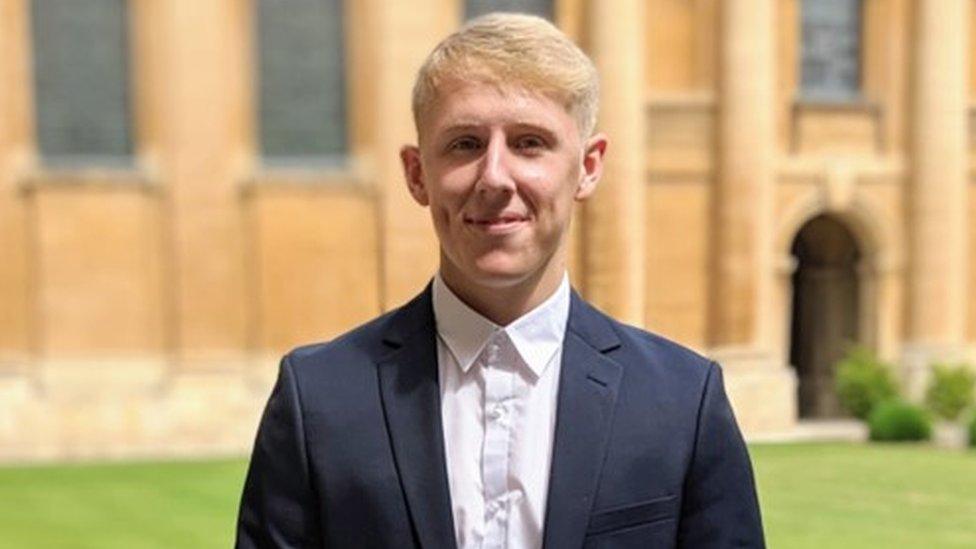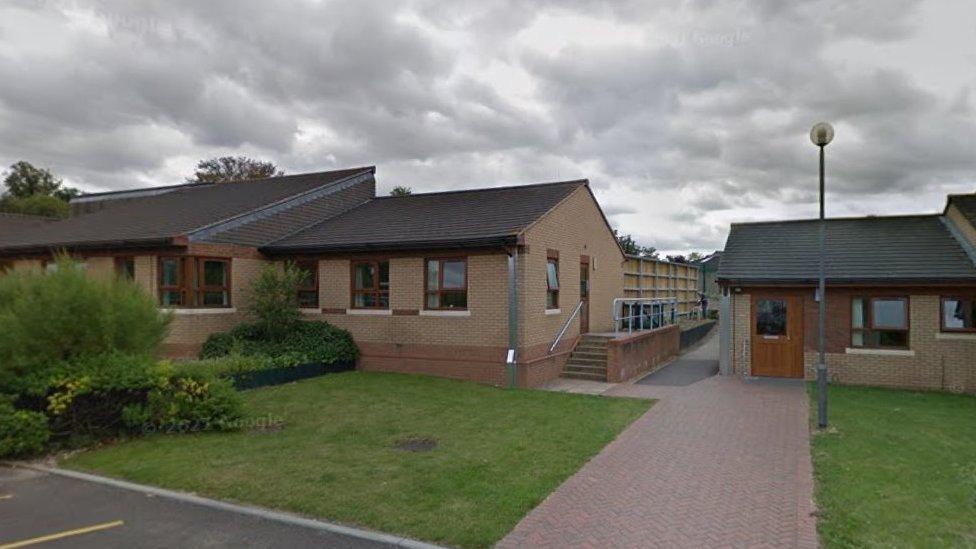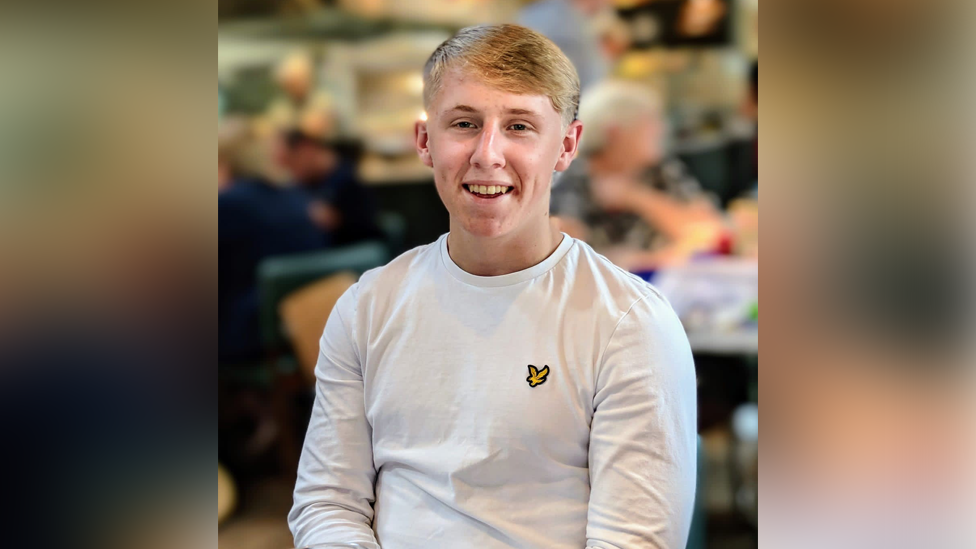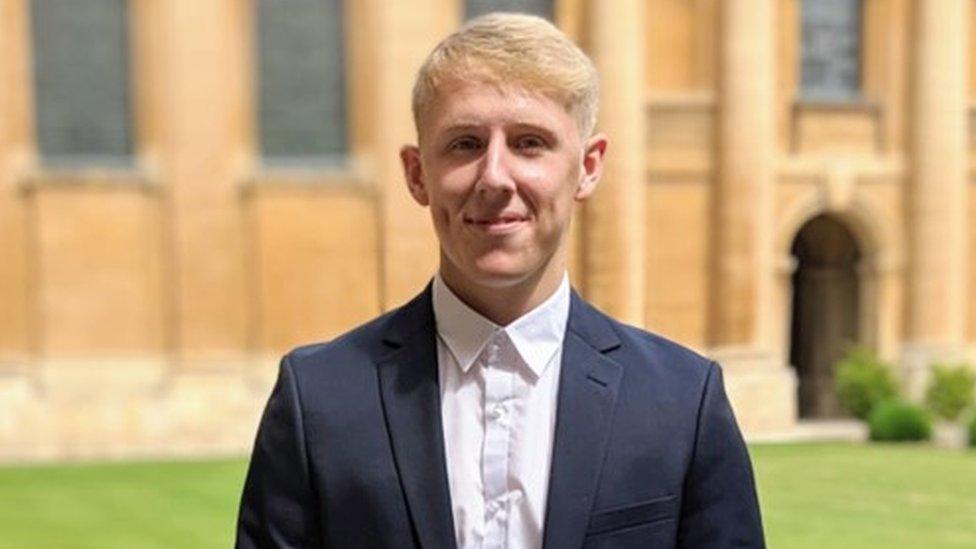Mental health neglect contributed to patient escape death - jury
- Published

Jamie Roe "never said a bad word about anyone", his mother said
Neglect contributed to the death of a man who escaped from a mental health hospital despite his known high risk of absconding, a jury has concluded.
Jamie Roe, 20, was detained at Fulbourn Hospital near Cambridge for two days when he absconded during a family visit and died in 2021.
The jury found there was "insufficient staffing and inadequate risk assessment in place to allow a safe visit".
The NHS trust involved said changes had since been made to its inpatient wards.
Mr Roe's mother Wendy Setterfield told the inquest, held at Peterborough Town Hall, that her son "was all inclusive, non-judgemental and never said a bad word about anyone".

Jamie Roe was detained at Mulberry 2 ward at Fulbourn Hospital
Mr Roe was seen by the mental health team at an accident and emergency department in Nottingham, where he was a student, because he was showing signs of psychosis on 13 November that year.
His flatmates had called for assistance because he was "acting bizarrely the previous evening" and said he had self-harmed, jurors heard.
He was taken to the Mulberry 2 ward at Fulbourn Hospital, which was closer to his home in the Peterborough area.
Jurors found: "He had been identified as a high absconsion risk by multiple clinicians. He was admitted to a unit with an airlock system as a mitigation of that risk."
But jurors said the visit from his mother took place in the family room which was within the airlock, "meaning that secure system was compromised, the location was inappropriate".
The jury found: "Staff did not have time to read full patient notes and understand the full picture of Jamie's absconsion risk due to inadequate staffing."

Jamie Roe's family said he was gentle and "sweet natured"
On the day of his mother's visit, jurors were told the ward was understaffed and the nurse in charge said "if I'd had the full picture it would not have been safe for him to be in the family room in the airlock".
The inquest heard Mr Roe absconded when a member of staff opened the door - on 15 November - and he was struck by a lorry later that day.
Coroner Philip Barlow said it was "agreed that there was no suggestion that Jamie intended to take his own life".
Jurors said their findings were "evidence of neglect which contributed directly to Jamie's death".
The Cambridgeshire and Peterborough NHS Foundation Trust (CPFT) said in a statement: "The death of Jamie Roe was a tragedy and we continue to extend our sincere condolences to his family and friends.
"We fully accept the findings of the jury and the recommendations made by the coroner.
"Patient safety is our highest priority and we have made a number of changes and improvements which have been implemented across our inpatient wards."
It said these included better patient risk training for all inpatient nursing staff, updated training and documentation of patients' observation levels, while relatives now met patients inside the ward.
The family room was also now only used for visits which included children under 16 years old - and had been returned to pre-Covid use - and a formal documented assessment was now made for any use of the family room, with visits supervised if necessary.
'No blame'
In a statement, Mr Roe's family described him as gentle and "sweet natured" and said they would cherish "many happy memories" forever.
They continued: "Jamie was very unwell at the time of his death, and the wider circumstances surrounding Jamie's death will always cause great anguish for us as a family.
"However, we do appreciate the openness of CPFT in admitting that there were failures, and we hope that permanent lessons will be learned from Jamie's death.
"We would like to highlight that we as a family do not blame any individuals for what happened to Jamie whilst under the care of CPFT, but do feel that he was let down by the system as a whole."
If you have been affected by any of the issues raised in this story you can contact Samaritans by calling 0330 094 5717 and help is also available via the BBC Action Line.

Follow East of England news on Facebook, external, Instagram, external and X, external. Got a story? Email eastofenglandnews@bbc.co.uk, external or WhatsApp 0800 169 1830
- Published4 December 2023
